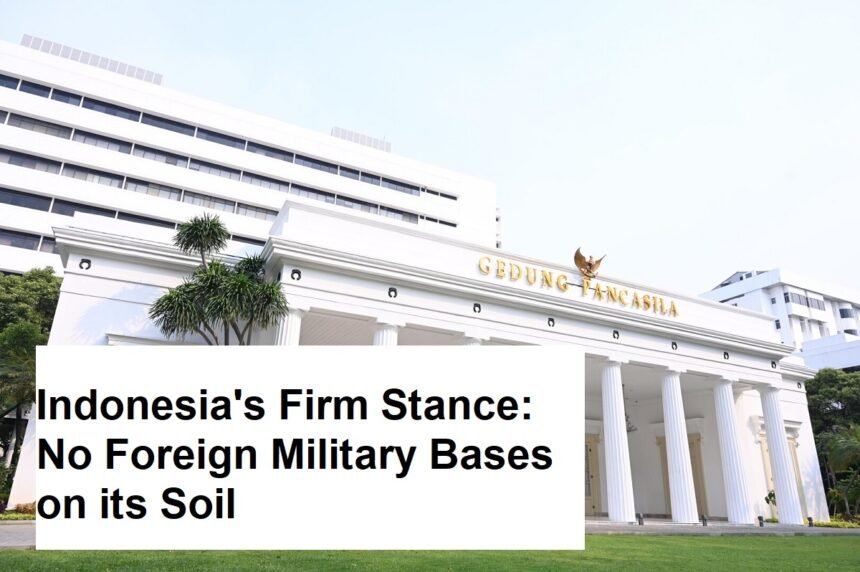The Indonesian Ministry of Foreign Affairs has unequivocally affirmed its commitment to the nation’s sovereignty and neutrality by denying any authorization for foreign countries to establish military bases within Indonesian territory. This firm stance, communicated in a written statement by Foreign Ministry Spokesperson Rolliansyah Soemirat (Roy) on Wednesday, April 16, 2025, directly addresses recent rumors alleging a request from Russia for access to an Air Force base in Biak, Papua. The Ministry’s pronouncement serves as a crucial clarification, reinforcing Indonesia’s long-held policy of non-alignment and strategic independence in the face of evolving geopolitical dynamics.
Indonesia’s constitution explicitly prohibits the presence of foreign military bases on its soil. This constitutional mandate stems from a deeply ingrained national identity rooted in independence and a commitment to contributing to regional peace and stability. The founding fathers envisioned a nation that actively participates in international affairs while safeguarding its territorial integrity and avoiding entanglement in great power rivalries. Therefore, the principle of non-alignment has been a cornerstone of Indonesian foreign policy since its inception, shaping its interactions with both regional and global actors.
The clarification issued by the Ministry is particularly significant in the context of increasing global strategic competition. Rumors regarding Russia’s alleged request for access to the Biak Air Force base, while unsubstantiated, highlight the potential for Indonesia to be drawn into the orbit of competing geopolitical interests. The strategic location of Indonesia, straddling key maritime routes and possessing vast natural resources, makes it a vital player in the Indo-Pacific region. Consequently, external powers often seek to cultivate closer ties with Indonesia, leading to speculation and the potential for misinterpretations regarding its foreign policy objectives.
By firmly rejecting any possibility of hosting foreign military bases, Indonesia sends a clear message that it remains steadfast in its commitment to maintaining its strategic autonomy. This decision is not merely a matter of national pride, but also a pragmatic assessment of the potential repercussions of allowing a foreign military presence. The establishment of a foreign base, even under seemingly benign conditions, could significantly alter the regional balance of power, potentially triggering a chain reaction of military build-up and increased tensions. Furthermore, it could compromise Indonesia’s ability to act as a neutral mediator in regional disputes, undermining its role as a champion of ASEAN centrality and peaceful conflict resolution.
The Ministry’s statement also underscores Indonesia’s commitment to fostering regional cooperation and security through alternative means. Instead of relying on foreign military alliances, Indonesia emphasizes the importance of diplomatic engagement, economic partnerships, and collaborative security initiatives to address shared challenges, such as maritime security, counter-terrorism, and disaster relief. Through these mechanisms, Indonesia aims to build a more stable and prosperous region, where all nations can thrive without resorting to military posturing or escalating tensions.
In conclusion, the Indonesian Ministry of Foreign Affairs’ reaffirmation of its policy against foreign military bases reflects a deep-seated commitment to the nation’s sovereignty, neutrality, and regional stability. This decisive statement effectively dispels rumors and reinforces Indonesia’s long-held position of strategic independence, ensuring its continued role as a responsible and influential actor in the Indo-Pacific region. The country remains dedicated to promoting peace, prosperity, and cooperation through diplomacy and multilateral engagement, resisting the temptation to be drawn into the complex dynamics of great power competition.












